Archives Hub feature for August 2020
“Summertime and the livin’ is easy...” ¹. Well, it’s a rather wet summer in the UK but all the better for exploring collections on the theme of fish!
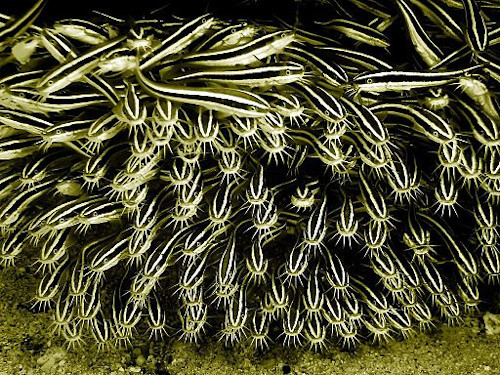
We’ve trawled the Archives Hub (sorry, couldn’t resist!) to bring you a selection of the wonderful, and sometimes surprising, collections relating to fish, ranging across research, expeditions, fisheries, the fishing industry and river authorities – not forgetting a fish and chip shop, a theatre and several appropriately named individuals.
Research and Expeditions
Fishes Collected by Darwin, 1842. 300 pages of notes on the fish collected by Darwin on the Beagle, compiled by Leonard Jenyns (1800-1893), a clergyman and naturalist; Jenyns changed his name to Leonard Blomefield in 1871. Held by the Museum of Zoology Archives, University of Cambridge https://archiveshub.jisc.ac.uk/data/gb433-jenynsdarwin.
C Tate Regan collection, 1912-1913. Charles Tate Regan (born in 1878) was keeper of zoology at the British Museum. He worked on the scientific results of the Scottish National Antarctic Expedition, 1902-1904 (leader William Speirs Bruce) and the British Antarctic Expedition, 1910-1913 (leader Robert Falcon Scott). He died in 1948. Published work includes ‘Antarctic fishes of the Scottish National Antarctic Expedition’ in the Reports of the scientific results of the voyage of the steam yacht Scotia and ‘Fishes’ and ‘Larval and post larval fishes’ published in the zoology reports of the British Antarctic Expedition, 1910-1913. Held by the Scott Polar Research Institute Archives, University of Cambridge https://archiveshub.jisc.ac.uk/data/gb15-charlestateregan.
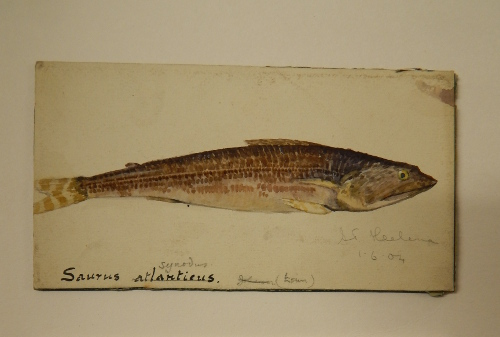
Winifred E. Frost collection, 1930s-1960s. Frost was an authority on the natural history of fish in the Lake District. Research includes work on euphausids with professor James Johnstone at Liverpool university and she worked for the fisheries branch at Dublin investigating trout in the River Lifey. She was appointed to the Freshwater Biological Association in 1938 and was awarded a D.S.c. by Liverpool University for her published papers. She wrote The Trout with Margaret E.Brown (Varley) published in 1967 that took 21 years to prepare. She was a member of the Council of the Salmon and trout association, and president of the Windermere and District angling association, also travelling to international scientific meetings and undertaking investigation of eels in Africa. Held by the Freshwater Biological Association Archives https://archiveshub.jisc.ac.uk/data/gb986-frow.
Notes towards a dictionary of fish names, by Paul Barbier (C20th). Barbier was Professor of French Language and Literature at the University of Leeds, 1903-1938. The collection comprises 8 boxes of notes prepared in the course of research for an unpublished dictionary of names of fishes. Held by University of Leeds Special Collections https://archiveshub.jisc.ac.uk/data/gb206-ms125.
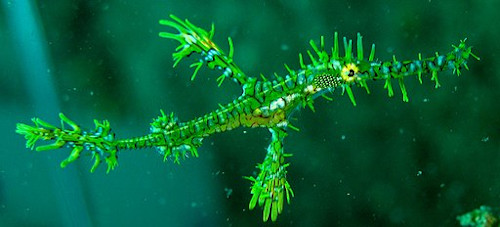
Rosemary Lowe-McConnell Collection, 1934-1947. Lowe-McConnell was a pioneer in tropical fish ecology. She was born in Liverpool, and graduated from the university. She worked at the Freshwater Biological Association studying the migration of silver eels. In 1993 Michael N. Bruton interviewed Lowe-Connell on the personal reasons behind her choice of work, and her personal influences, and experiences of being a woman in a male dominated world. Initially she wanted to be an explorer/naturalist, with the reply being ‘never mind dear, perhaps you can teach’. When applying for the colonial services in 1945, to be an entomologist, they would not employ a female one, but the tropical fisheries department was new, and not considered as important. Despite her being forced to resign in 1954 when the marriage bar was in place, she was more interested in pursuing her findings than concerned with job status, and she believed that the fact she had been offered the directorship at the Joint Fisheries Research organisation in central Africa (which she rejected) showed her that she was accepted despite being female. Held by Freshwater Biological Association Archives
https://archiveshub.jisc.ac.uk/data/gb986-lowr.
Journal of John Walsh’s Visit to France in 1772. John Walsh (1726-1795) was elected to the Royal Society in 1770, and became known for his work on the electric ray, Torpedo marmorata. In 1769 Edward Banfield proved that the electric eel emitted electric shocks, and Walsh set out to confirm that the ray had a similar power. In this he was encouraged by Benjamin Franklin, whose American colleagues were undertaking similar investigations. With his nephew Arthur Fowkes he spent the summer of 1772 at La Rochelle, where the ray was often captured. The fish could survive many hours out of water, and Walsh was able to conduct experiments ashore and successfully proved that the ray’s shocks were caused by electricity. His findings were published in the Royal Society’s Philosophical Transactions, vol. 63 (1773), pp. 461-77, and the Royal Society awarded him the Copley medal for his achievement. Held by University of Manchester Library https://archiveshub.jisc.ac.uk/data/gb133-engms724.
Fisheries and the Fishing industry
Records of Aberdeen Fish Curers and Merchants Association, 1888-1947. The association was established in May 1888, as Aberdeen Fish Trade Association, and was incorporated with its present title in 1944. It began in response to the introduction of sales by auction in the late nineteenth century, its first achievement being an agreement amongst fish sellers to provide discounts for cash sales to accredited buyers. Membership was open to wholesale fish merchants and fish curers carrying on a business in Aberdeen, and in 1980 stood at more than 200. Held by University of Aberdeen Special Collections https://archiveshub.jisc.ac.uk/data/gb231-ms3054.
Records of the Berwick Salmon Fisheries Co Ltd, salmon fishers, Berwick upon Tweed, England, 1562-1964 (predominant 1860-1964). The Old Shipping Co, shipping traders and salmon fishers, Berwick-upon-Tweed, Northumberland, England, was established at some point prior to 1766 by a group of local men, mainly coopers, who held shares in a small sailing fleet engaged in the London, coastal and foreign trade. As commodities included salmon, the company leased fishing rights on the river Tweed. The shipping vessels were sold off in 1869 as business had become unprofitable and the company’s name changed to Berwick Salmon Fisheries Co Ltd in 1872. Held by University of Glasgow Archive Services https://archiveshub.jisc.ac.uk/data/gb248-ugd245.
Volume containing two copies of a printed register relating to Netherlands herring fisheries, 1749: entitled Naamlyst der boekhouders, schepen, en stuurluiden van de haring-shepen, in’t Yaar 1749, van Enchisen en de Ryp, ter haring-shepen uitgevaren (Jan von Guissen, Enkhuisen, 1749), giving details of the ships, owners and captains of the fleets of Enkhuisen and De Rijp. Added in manuscript are details of the total catch for 1749, and the catch for individual ships on various voyages. Held by Senate House Library Archives, University of London
https://archiveshub.jisc.ac.uk/data/gb96-ms115.
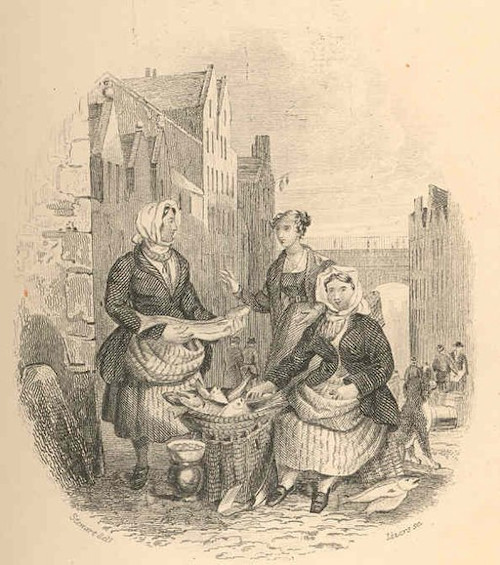
Grimsby Steam and Diesel Fishing Vessels’ Engineers’ and Firemen’s Union, 1897-1987. The Grimsby Steam Fishing Vessels’ Engineers’ and Firemen’s Union was founded in 1896. It changed its name to the Grimsby Steam and Diesel Fishing Vessels’ Engineers’ and Firemen’s Union in 1961. In 1976 it transferred engagements to the Transport and General Workers’ Union, becoming 10/3c Branch. Held by Modern Records Centre, University of Warwick https://archiveshub.jisc.ac.uk/data/gb152-gsf.
The business records of Shippam’s Ltd, 1853-1995. The Shippam’s business first started in 1786, when Charles Shippam established a grocery store in Westgate, Chichester. In 1886 they began food manufacturing and in 1894 launched a wide range of potted meat and fish pastes, for which Shippam’s was to become internationally famous. Held by West Sussex Record Office https://archiveshub.jisc.ac.uk/data/gb182-shippam’s.
Fish and Chips
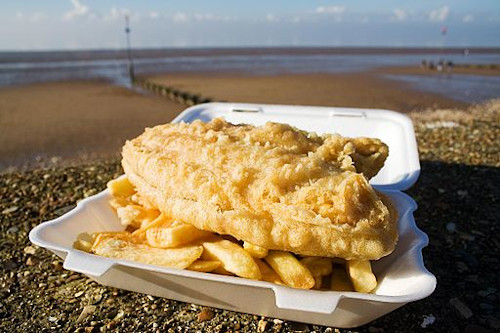
Records of Pesci Bros Fish and Chip Shop, 1920-1994. The Pesci family, originally from Bardi in Italy, came to Barking from Wales in 1934, and went on to open a fish and chip shop at 15 Broadway. Only a few years later the shop was compulsorily purchased by Barking Borough Council so that the site could be used for the building of the new Town Hall. After a long search for a new premises, the family finally re-opened at 26 Ripple Road in 1939. The business flourished for nearly 60 years. Held by Barking and Dagenham Archive and Local Studies Centre https://archiveshub.jisc.ac.uk/data/gb350-bd76.
River authorities
Records of the Centre for Environment, Fisheries and Aquaculture Science, Benarth Road, Conwy, 1916-1994. In December 1999 the Conwy Laboratory closed after approximately ninety years of pioneering research and development into fish and shellfish aquaculture. The laboratory’s foundation came about following the building of mussel purification tanks by Conwy Corporation in 1913, in an attempt to improve the quality of Conwy mussels, which had been at the centre of several serious infections. The collection is of scientific importance in documenting experiments of international significance. Additionally, it reflects the traditional activities of the mussel fishermen themselves. Held by Gwasanaeth Archifau Conwy / Conwy Archive Service https://archiveshub.jisc.ac.uk/data/gb2008-cd3.
Environment Agency Collection, 1786-2010. The collection consists of reports, surveys, data records, maps, administrative records and other material relating to the work of the Environment Agency (and of its predecessor organisations the various River Boards, River Authorities, Water Authorities and the National Rivers Authority). A few documents date back to the 19th century and earlier, the majority spans the 1930s to the 1990s. Most of the collection relates to the Agency’s monitoring and management of the area’s river and lake catchments, with an emphasis on fisheries, biodiversity, constructions such as fish passes, weirs and fish traps, fish diseases, water quality and pollution. Included are papers relating to the Agency’s corporate, strategy and public affairs, as well as information on regional and national byelaws, net limitation orders and historic fishery rights. Held by Freshwater Biological Association Archives https://archiveshub.jisc.ac.uk/data/gb986-enva.
A Different Kettle of Fish
Records relating to Ada Fish, First World War munitions worker at Pembrey, 1918-1919. Held by West Glamorgan Archive Service https://archiveshub.jisc.ac.uk/data/gb216-d/dz969.
Fisher Theatre, Bungay, 1790-1886. The Fisher theatre at Bungay, Suffolk, opened in February 1828. Built by David Fisher I, the theatre was one of a dozen serving the circuit of Fisher’s company, The Norfolk and Suffolk Company of Comedians and seasons of performances were produced on a two-year cycle. The theatre was sold by the Fishers in 1844 and was used subsequently as a corn hall, furniture store, steam laundry, cinema, and textile warehouse. In 2000 the building was acquired by the Bungay Arts Trust. After extensive renovations the building was re-opened in 2006 as a community theatre and arts centre which is also licensed for wedding and civil ceremonies. Held by the University of East Anglia Archives https://archiveshub.jisc.ac.uk/data/gb1187-ftb.
Papers of Robert Salmon Hutton, 1897-1970. Hutton was born in 1876 in London. His family owned a silversmiths in Sheffield. Hutton pursued his research interests in electro-metallurgy with Professor Arthur Schuster at Manchester and Henri Moissan in Paris. From 1900-1908 he was a lecturer in electro-chemistry at the University of Manchester, where he carried out pioneering work on electric furnace technology, seeing its value for commercial metallurgy. In 1903 he perfected a method for the mass production of fused silica. Hutton had a great interest in research and development, and he was aware of failings in this area by British metallurgical industries. A great believer in the value of technical libraries, he was a founder of the Association of Scientific Libraries Information Bureau (ASLIB) in 1924. Held by University of Manchester Library https://archiveshub.jisc.ac.uk/data/gb133-hut.

Herring, Thomas (1693-1757). Papers of Thomas Herring, Archbishop of Canterbury 1747-57. 4 volumes, held by Lambeth Palace Library https://archiveshub.jisc.ac.uk/data/gb109-herring.
Papers of George Gordon Hake, 1891-1904. Hake was born in 1847. He spent thirteen years from 1891 working in South Africa, initially with the British South Africa Company and later with the Tanganyika Telegraph Service during 1889 and 1903 in the Mashonaland area. He died in 1903 and was buried at Port Herald. Hake was closely connected to the Rossetti family in their later years, acting as a ‘minder’ to Dante Gabriel Rossetti during one of their family holidays. Christina Rossetti was also godmother to his daughter Ursula. Held by School of Oriental and African Studies (SOAS) Archives, University of London https://archiveshub.jisc.ac.uk/data/gb102-ppms40.
Henry Guppy (1861-1948) was librarian of the John Rylands Library from 1900-1948. Held by University of Manchester Library https://archiveshub.jisc.ac.uk/data/gb133-tft/tft/1/459.
Declaration of Trust of Leasehold Property in Breams Buildings, Chancery Lane, London, 1888. Lease for the Breams Building, which was the main Birkbeck site from 1888-1952. The lease is in the form of a soft cover book, written over several velum pages, with wax seals on the last page. Held by Birkbeck Library Archives and Special Collections, University of London https://archiveshub.jisc.ac.uk/data/gb1832-bbk/bbk/6/1.
John Whiting Archive, 1917-1963. Whiting, a playwright and actor, was born in 1917 Salisbury, UK. He received his education at Taunton School and then later trained as an actor at Royal Academy of Dramatic Art. After his time in the army Whiting had some success as an actor and then went onto write numerous plays, short stories and plays for radio. Whiting also took up theatre criticism during the last few years of his life for ‘London Magazine’, some of his work can be found in the ‘The Art of Dramatist’ (1970). Held by V&A Theatre and Performance Collections https://archiveshub.jisc.ac.uk/data/gb71-thm/222.
Roe Manuscripts, 10th-17th century. Sir Thomas Roe was born in 1580 or 1581, and matriculated at Magdalen College, Oxford, in 1593, but took no degree. In 1605 he was knighted, and in 1614 began his official journeys to the East which made him famous. From that year to 1618 he was Ambassador to Jehngr, the Mogul emperor of Hindustan, and from 1621 to 1628 to the Turkish Court. In 1640 Roe was elected a burgess of the University in Parliament, and died in 1644. The manuscript collection comprises: 27 Greek, one Hebrew, one Arabic, and one Latin. Held by the Bodleian Library, University of Oxford https://archiveshub.jisc.ac.uk/data/gb161-mss.roe1-17,18a-b,19-29.
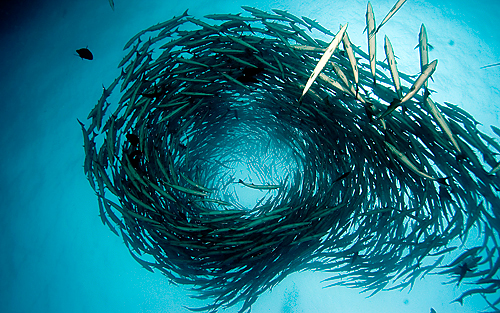
Rocket assisted take off by a Barracuda, 1945 – on HMS Trumpeter. 2 photos, held by Gwasanaeth Archifau Conwy / Conwy Archive Service https://archiveshub.jisc.ac.uk/data/gb2008-cp1727/cp1727/4/1/40.
Previous features relating to Fish
Silt, sluices and smelt fishing – The Eau Brink Cut and the Bedford Level Corporation Archive
Silt, sluices and smelt fishing – The Eau Brink Cut and the Bedford Level Corporation Archive
William Speirs Bruce Archive in the National Museums Scotland Library
William Speirs Bruce Archive in the National Museums Scotland Library
